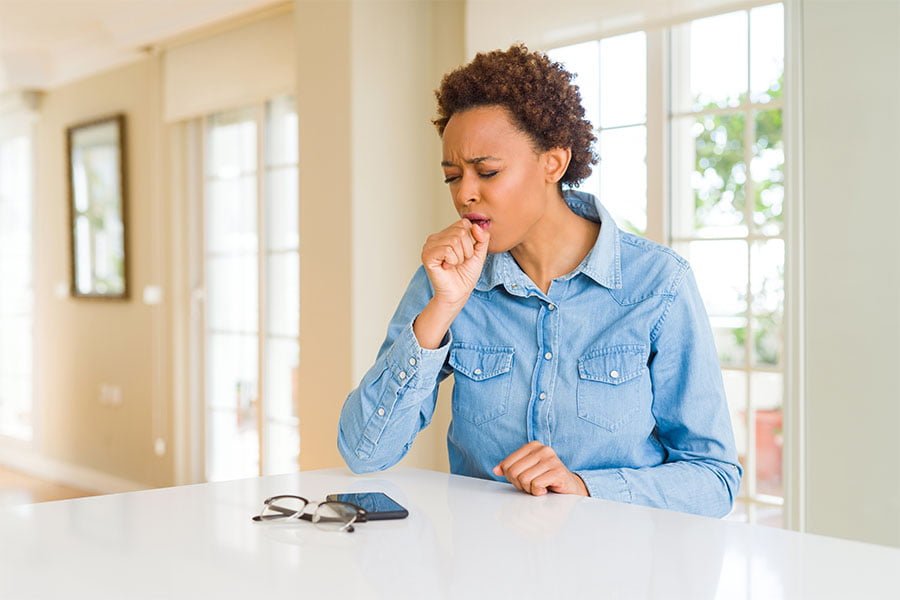Introduction
Dealing with a persistent cough can be quite frustrating, especially when it disrupts your sleep at night. Coughing at night can be caused by various factors, such as allergies, postnasal drip, asthma, or even a common cold. Thankfully, there are several effective ways to alleviate nighttime coughing and ensure a restful night’s sleep. In this article, we will explore some practical tips to help you stop coughing at night.
1. Elevate Your Head
One simple yet effective way to reduce nighttime coughing is by elevating your head while sleeping. Use an extra pillow or raise the head of your bed slightly to create a gentle incline. This position helps to prevent postnasal drip and reduces the irritation in your throat that triggers coughing.
2. Keep Your Bedroom Clean and Dust-Free
Allergens such as dust mites, pet dander, and pollen can worsen your nighttime cough. Ensure that your bedroom is clean and free from dust by regularly dusting surfaces, vacuuming carpets, and washing bedding in hot water. Consider using allergen-proof pillowcases and mattress covers to minimize exposure to allergens while you sleep.
3. Use a Humidifier
Dry air can irritate your throat and worsen your cough. Using a humidifier in your bedroom can help add moisture to the air, reducing throat irritation and relieving coughing. Make sure to clean the humidifier regularly to prevent the growth of mold or bacteria.
4. Stay Hydrated

Drinking plenty of fluids throughout the day can help thin mucus and soothe your throat, reducing coughing at night. Opt for warm liquids like herbal tea or warm water with honey, as they can provide additional relief. Avoid caffeinated and alcoholic beverages, as they can dehydrate your body and worsen your cough.
5. Try a Cough Suppressant
If your cough persists and affects your sleep, you may consider using an over-the-counter cough suppressant. These medications can help reduce the urge to cough and provide temporary relief. However, it’s important to read and follow the instructions carefully, and consult with a healthcare professional if you have any underlying health conditions or are taking other medications.
6. Use Steam Inhalation
Inhaling steam can help soothe your irritated throat and loosen mucus, making it easier to clear your airways. Fill a bowl with hot water, place a towel over your head, and lean over the bowl to inhale the steam. Be cautious to avoid burns, and consider adding a few drops of essential oils like eucalyptus or peppermint for added relief.
7. Avoid Triggers
Identify and avoid any triggers that worsen your coughing at night. These triggers can vary from person to person and may include certain foods, environmental irritants, or even specific sleeping positions. Keeping a cough diary can help you track potential triggers and make necessary adjustments to your lifestyle or sleeping environment.
8. Seek Medical Advice
If your cough persists for more than a few weeks, is accompanied by other symptoms like chest pain or difficulty breathing, or if you have a pre-existing health condition, it is advisable to seek medical advice. A healthcare professional can evaluate your symptoms, identify the underlying cause, and recommend appropriate treatment options.
Conclusion
Dealing with a cough at night can be disruptive and frustrating, but with these effective strategies, you can find relief and enjoy a restful night’s sleep. Elevating your head, keeping your bedroom clean, using a humidifier, staying hydrated, trying a cough suppressant, using steam inhalation, avoiding triggers, and seeking medical advice when necessary are all valuable approaches to stop coughing at night. Remember, everyone’s situation is unique, so it may take some trial and error to find the strategies that work best for you. Take care of your health, prioritize restful sleep, and soon you’ll be able to bid farewell to those nighttime coughing fits.
